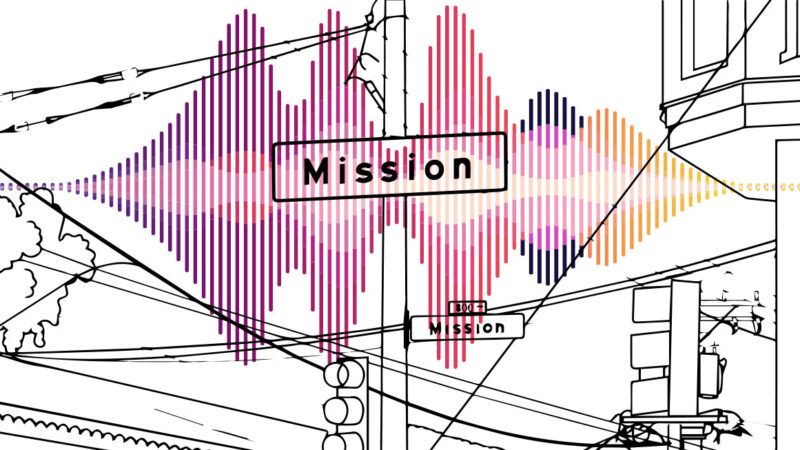A San Francisco Coder Built a Musical Surveillance System
With a name inspired by a controversial police surveillance technology, Bop Spotter scans the streets for ambient tunes.

Somewhere in San Francisco's Mission District, they say a solar-powered phone is concealed in a box atop a pole. The phone is running Shazam—an app that identifies songs—with a microphone trained on the street below. If you visit walzr.com, you can see what music has drifted into the mic's range, hear fragments of the tracks mixed with ambient street noise, and click links to hear the full songs on Spotify or Apple Music.
The man behind this is Riley Walz, a 22-year-old programmer with a history of prankish projects, such as tricking Twitter into verifying a fake congressional candidate. He calls this one Bop Spotter, after ShotSpotter, a controversial company whose sound sensors can allegedly pinpoint a gunshot's location.
Outside investigators have raised serious questions about ShotSpotter's accuracy, leading many activists to demand that police departments not use it. When Walz unveiled Bop Spotter, it set off another round of online arguments about these issues. But Walz insists that he wasn't trying to make a political statement. "It is interesting though that this has sparked a debate about surveillance," he says. "Tracking what songs people are blasting seems innocuous and no one really has a problem with it, but maybe they should? I have no idea. But the debate is cool."
Walz's website says the project is about "catching vibes," so I ask him what vibes he's caught so far. "There have been some interesting ones," he replies. "Someone played 'Me So Horny' on Monday at 9 a.m. Or 'Just the Two of Us' on Sunday at 3 a.m. I like imagining what the stories behind these are." His setup hasn't required much maintenance so far, and he hopes it will be soaking up sounds for years. "It'll be cool to do analysis on how genres/artists have changed over time. And see if there's correlation with all sorts of things: weather, gentrification, immigration."
The project has been popular: After Walz tweeted that with $2,000 he'd build more boxes and send them around the world, he reports, the money popped up in his PayPal within an hour. "People in Seattle, Austin, New York, Boston, Sweden, London, even the Philippines are gonna put one up!"
Given Walz's history of pranks, diligence requires me to add that I live approximately 2,800 miles from San Francisco and cannot corroborate this story with my own eyes and ears. But one X user, the entrepreneur and housing activist Vincent Woo, has tweeted that he located the site and confirmed that it works by playing a song there. Specifically, he played Rick Astley's "Never Gonna Give You Up." Even a surveillance system can be rickrolled.
This article originally appeared in print under the headline "Musical Surveillance."


Show Comments (19)